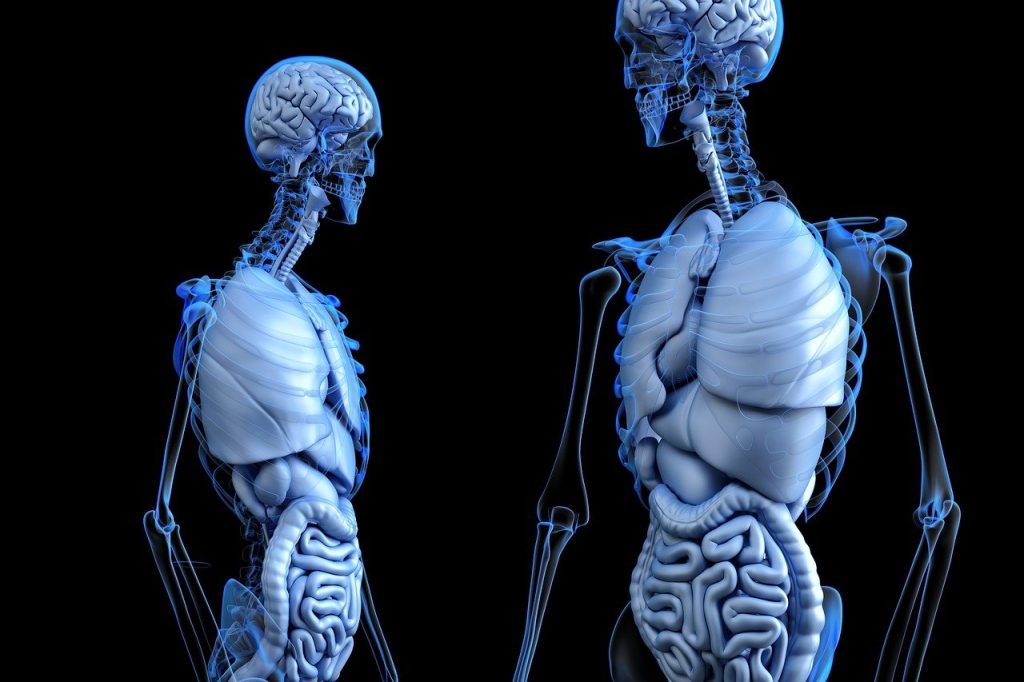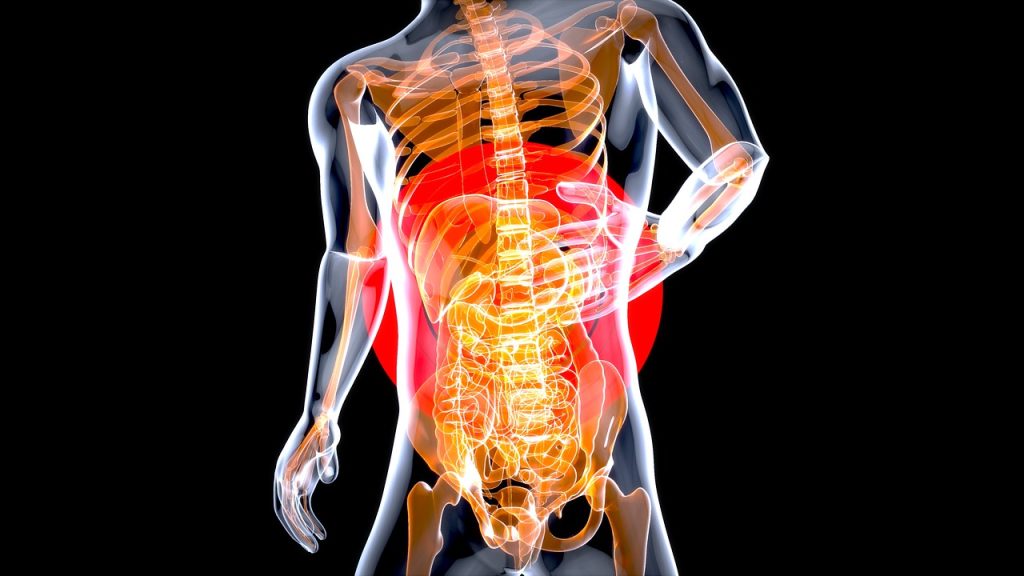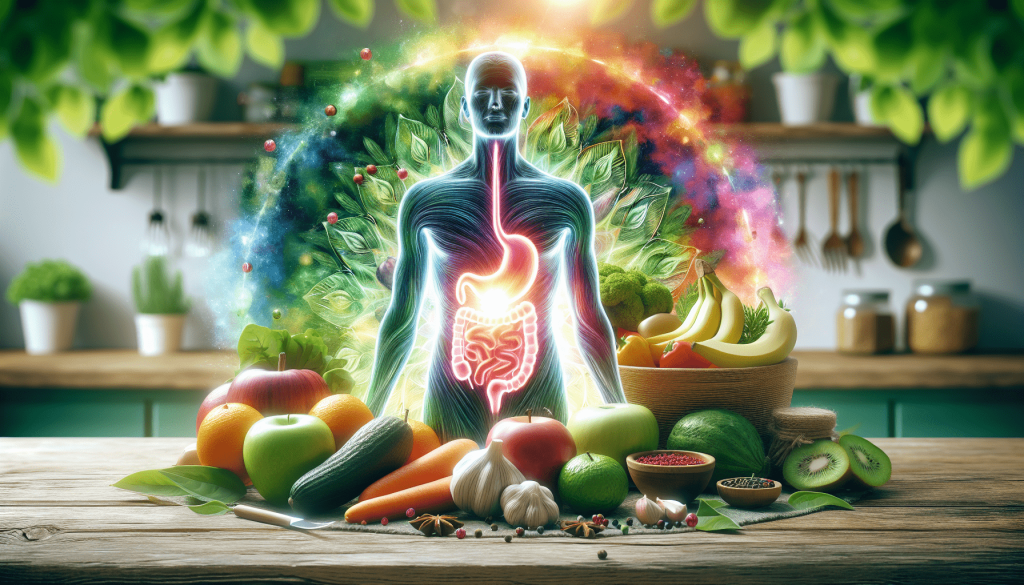Are you feeling sluggish, bloated, or lacking energy? If so, it may be time to give your gut a little love and attention. In this article, we will guide you through a simple, step-by-step approach to cleansing your gut and revitalizing your overall well-being. By following these easy-to-implement strategies, you can start experiencing the benefits of a healthy gut, such as improved digestion, increased energy levels, and a boost in your immune system. So, let’s dive in and embark on a journey towards a happier, healthier gut!

Understanding the Importance of Gut Health
Your gut plays a crucial role in your overall health and well-being. It is responsible for the digestion and absorption of nutrients, and it is also closely linked to your immune system and even your mood. The gut is home to trillions of bacteria, collectively known as the gut microbiota, which influence various aspects of your health. Maintaining a healthy gut is essential for optimal functioning of your body.
Overview of the gut
Your gut, also known as the gastrointestinal tract, is a complex system that starts at your mouth and ends at your anus. It includes organs such as the esophagus, stomach, small intestine, and large intestine. The gut is responsible for the breakdown of food into nutrients, which can be absorbed by the body for energy and other essential functions.
Role of gut bacteria
The gut is inhabited by a vast community of bacteria, commonly known as gut flora or gut microbiota. These bacteria play a crucial role in maintaining a healthy gut. They help in digestion, produce certain vitamins, support the immune system, and even influence your mood. A balanced and diverse gut microbiota is essential for overall health.
Signs of an unhealthy gut
An unhealthy gut can manifest in various ways. Some common signs include digestive issues like bloating, gas, constipation, or diarrhea. Food intolerances, frequent infections, and skin problems like acne or eczema can also indicate poor gut health. Additionally, mood disorders like anxiety and depression may be linked to an imbalance in the gut microbiota. Understanding these signs can help you assess the health of your gut and make necessary changes to improve it.
Step 1: Assessing Your Current Gut Health
Assessing the health of your gut is the first step towards improving it. This involves paying attention to your body’s signals and identifying any potential issues.
Keeping a food diary
Keeping a food diary can help you identify patterns and potential triggers that may be affecting your gut health. Record what you eat, when you eat it, and any symptoms you experience afterwards. This can help you pinpoint specific foods that might be causing digestive issues or other problems.
Identifying food intolerances
Food intolerances occur when your gut has difficulty digesting certain foods. Common culprits include gluten, dairy, and certain FODMAPs. If you notice that certain foods consistently cause digestive discomfort or other symptoms, it may be worth considering a food intolerance test or an elimination diet to identify problem foods.
Evaluating bowel movements
Your bowel movements can provide valuable insights into the health of your gut. Pay attention to frequency, consistency, and color. Changes in bowel habits, such as persistent diarrhea or constipation, may indicate an underlying gut issue that needs to be addressed.
Recognizing symptoms of poor gut health
Being mindful of symptoms associated with poor gut health can help you identify areas that need improvement. These symptoms can include bloating, gas, heartburn, indigestion, fatigue, brain fog, and skin issues. If you regularly experience these symptoms, it may be a sign that your gut needs attention.
Step 2: Eliminating Potential Triggers
Eliminating potential triggers from your diet and lifestyle can help reduce inflammation and promote gut healing.
Removing processed foods
Processed foods are often high in unhealthy fats, refined sugars, and additives that can disrupt the balance of your gut microbiota. By minimizing or eliminating these foods from your diet, you can reduce inflammation and support a healthier gut.
Reducing sugar consumption
Excessive sugar intake can negatively impact your gut health by promoting the growth of harmful bacteria. Limiting your consumption of sugary foods and beverages can help restore balance in your gut microbiota.
Avoiding artificial additives
Artificial additives, such as preservatives, colorings, and flavor enhancers, can disrupt the delicate balance of your gut bacteria. Try to choose whole foods and minimize your intake of processed products that contain these additives.
Minimizing alcohol intake
Excessive alcohol consumption can damage the lining of your gut and disrupt the balance of your gut bacteria. Moderation is key, so try to limit your alcohol intake and opt for healthier alternatives like herbal tea or infused water.
Identifying and avoiding allergens
Food allergies or sensitivities can cause inflammation and damage to your gut. If you suspect you have any food allergies or sensitivities, consider getting tested or eliminating potential allergens from your diet to see if your symptoms improve.
Step 3: Incorporating Gut-Friendly Foods
Once you have eliminated potential triggers, it’s time to incorporate foods that promote a healthy gut.
Introducing probiotic-rich foods
Probiotics are beneficial bacteria that can help restore balance to your gut microbiota. Foods like yogurt, kefir, sauerkraut, kimchi, and tempeh are rich in probiotics and can support a healthy gut.
Including prebiotic foods
Prebiotics are a type of fiber that feed the good bacteria in your gut. Foods rich in prebiotics include garlic, onions, leeks, asparagus, bananas, and chicory root. Adding these foods to your diet can help nourish your gut bacteria.
Consuming fermented foods
Fermented foods not only provide probiotics but also promote the growth of beneficial bacteria in your gut. Examples of fermented foods include kombucha, miso, pickles, and sourdough bread. Including these foods in your diet can contribute to a healthy gut environment.
Incorporating fiber-rich foods
Fiber is essential for a healthy digestive system. It promotes regular bowel movements and provides nourishment for your gut bacteria. Include a variety of fruits, vegetables, whole grains, and legumes in your diet to ensure an adequate intake of fiber.
Adding healthy fats
Healthy fats, such as those found in avocados, nuts, seeds, and olive oil, can support gut health by reducing inflammation and promoting proper nutrient absorption. Including these fats in your diet can help maintain a healthy gut.

Step 4: Hydrating Your Gut
Proper hydration is essential for maintaining a healthy gut.
The importance of hydration
Water is necessary for digestion, nutrient absorption, and the removal of waste from your body. Staying hydrated ensures that your digestive system functions optimally and helps prevent constipation.
Choosing the right beverages
Opt for water as your main source of hydration. Avoid sugary drinks and excessive caffeine, as they can irritate your gut and cause inflammation. Herbal teas and fresh fruit-infused water are excellent alternatives that can provide hydration and beneficial nutrients.
Infusing water with gut-cleansing ingredients
To further support gut health, consider infusing your water with ingredients known for their cleansing properties. Lemon, cucumber, mint, or ginger can add flavor and provide additional benefits for your digestive system.
Step 5: Managing Stress Levels
The gut-brain connection is a powerful link between your mental and digestive health.
The gut-brain connection
Stress and emotions can affect gut health and vice versa. High stress levels can disrupt the balance of your gut microbiota and lead to digestive issues. It’s important to manage stress effectively to support a healthy gut.
Implementing stress reduction techniques
Adopting stress reduction techniques like meditation, deep breathing exercises, regular exercise, and spending time in nature can help alleviate stress and promote a healthy gut.
Prioritizing self-care
Self-care is essential for overall well-being, including gut health. Engaging in activities that bring you joy and relaxation, such as reading, taking baths, or spending time with loved ones, can help reduce stress and support a healthy gut.

Step 6: Supporting Digestion
Supporting digestion is crucial for maintaining a healthy gut.
Eating mindfully
Practicing mindful eating involves being present and paying attention to the process of eating. Chew your food thoroughly, savor the flavors, and avoid distractions to promote proper digestion.
Chewing food thoroughly
Chewing your food thoroughly breaks it down into smaller pieces, making it easier for your digestive system to process. Aim to chew each bite at least 20 times before swallowing.
Incorporating digestive aids
Certain herbs and spices, such as ginger, peppermint, fennel, and chamomile, can aid digestion and soothe the gut. Consider incorporating these ingredients into your meals or consuming them as herbal teas.
Practicing intermittent fasting
Intermittent fasting involves alternating periods of eating and fasting. This approach can give your gut a break and promote more effective digestion. Start slowly by gradually extending the time between your last meal of the day and your first meal of the next day.
Considering supplements
In some cases, supplements may be beneficial in supporting your gut health. Probiotic supplements can help replenish beneficial bacteria, while digestive enzymes can assist in the breakdown of food. Consult with a healthcare professional to determine if supplements are appropriate for you.
Step 7: Detoxifying Your Gut
Detoxifying your gut involves eliminating toxins and promoting a healthy gut environment.
The concept of gut detoxification
Gut detoxification aims to eliminate harmful substances that may be affecting your digestive system. This can be done through dietary and lifestyle changes that support the natural detoxification processes of your body.
Herbs and supplements for gut detox
Certain herbs and supplements, such as milk thistle, dandelion root, and activated charcoal, can support the detoxification process in your gut. However, it’s important to consult with a healthcare professional before starting any detox program or taking new supplements.
Diverse detoxification methods
In addition to incorporating detoxifying foods and supplements, various methods can support gut detoxification. These include staying hydrated, engaging in regular exercise, practicing sauna therapy, and getting plenty of sleep. Finding a combination of methods that works for you can help promote a healthy gut.

Step 8: Rebuilding and Repairing the Gut
Rebuilding and repairing the gut is essential for long-term gut health.
Restoring gut flora
After detoxification, it’s important to replenish and support a healthy balance of gut bacteria. Probiotic supplements, as well as foods like yogurt and fermented vegetables, can aid in restoring beneficial bacteria.
Healing the gut lining
Leaky gut syndrome, a condition where the lining of the gut becomes damaged, can contribute to poor gut health. Consuming foods rich in nutrients like collagen, bone broth, and glutamine can help promote the healing of the gut lining.
Utilizing gut-healing nutrients
Certain nutrients are essential for gut health and can aid in the rebuilding process. These include omega-3 fatty acids, vitamin D, zinc, and antioxidants. Incorporating foods rich in these nutrients, such as fatty fish, eggs, nuts, seeds, and colorful fruits and vegetables, can support gut healing.
Considering probiotic and enzyme supplements
Probiotic and enzyme supplements can provide additional support for gut health. Probiotics help restore balance in the gut microbiota, while digestive enzymes assist in the breakdown of food. Consult with a healthcare professional to determine the most appropriate supplements for your needs.
Conclusion
Embracing a long-term gut-healthy lifestyle is key to maintaining a cleansed gut and reaping the benefits of optimal digestive function. Remember to maintain balance and consistency in your dietary and lifestyle choices. By assessing and improving your gut health, you are taking a significant step towards enhancing your overall well-being and enjoying the benefits of a healthier, revitalized gut.









